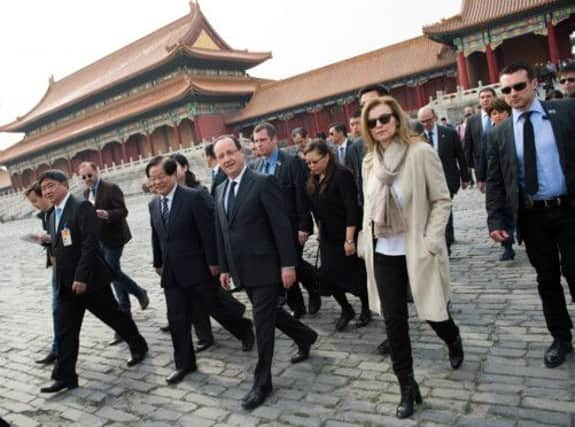China jails over 1,400 people in loans crackdown


The practice is widely used by China’s entrepreneurs, police in the country revealed yesterday.
The 1,449 people imprisoned were among 4,170 people convicted since 2011 of violating rules on loans outside the state-run banking system, said Du Jinfu, a public security ministry official in charge of a taskforce on underground lending. He said the rest received lesser penalties.
Advertisement
Hide AdAdvertisement
Hide AdEntrepreneurs who generate China’s new jobs and wealth are largely shut out of lending by government banks and rely heavily on informal lending by individuals. Loans are arranged by middlemen who are paid a fee and borrowers pay interest of 70 per cent a year or more.
People arrested in the crackdown were convicted of violations including public advertising to find lenders and promising excessively high rates of return, Mr Du said at a news conference. But legal experts say loans between individuals are legal and the government has failed to make clear what lenders and borrowers are allowed to do.
“The distinction between illegal fundraising and private lending still remains unclear,” said the Dui Hua Foundation, a San Francisco-based group that researches China’s justice system, in a report in February.
The crackdown threatens to affect credit to entrepreneurs who the World Bank and other advisers say the government should be encouraging in order to keep China’s economic growth strong.
Communist leaders have promised more bank lending to the private sector but entrepreneurs say they still have trouble getting loans.
The cabinet announced a pilot last year in Wenzhou, a city in the south-east which is a centre for private industry, to test more closely regulated private lending.
Despite that, it is harder for entrepreneurs to get loans, said Zhou Dewen, head of an association for small businesses there.
“Banks are offering fewer loans, because the bad loan rate is rising,” said Zhou. “It is harder to get underground loans, too. People are more afraid of running the risk of lending money.”
Advertisement
Hide AdAdvertisement
Hide AdMr Du did not explain whether the people punished in the crackdown were the final borrowers or the middlemen.
In a high-profile case, an entrepreneur from Wenzhou, Wu Ying, was sentenced to death last year for “illegal fundraising” although details were not disclosed. The 31-year-old woman, whose business success had been celebrated by state media, was convicted of improperly raising 770 million yuan (£77m) from investors in 2005-7.
China’s supreme court overturned Wu’s death sentence following an outcry on the internet over the severity of the penalty. She was re-sentenced to death with a two-year reprieve, which is usually commuted to a long prison term.
According to an explanation on the supreme court website, charges of “illegal fundraising” can be applied to an individual who receives more than 200,000 yuan of informal loans, or causes losses to lenders of 100,000 yuan. Enterprises can face charges if they receive a million yuan or cause losses of 2.5 million yuan.